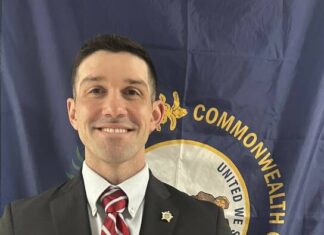The United States is close to 40 years into the ‘War on Drugs.’ What began as a campaign of good intentions has become among the most costly policy failures of the last 150 years. We seem unwilling or unable to grapple with the immense consequences, or indeed even fully appreciate the depth, of the problem. Before I explain the issue and discuss some reasonable alternatives, I wish to make clear my personal feelings about illegal drug use.
I am about as anti-drug as a baby boomer can possible be, and personally view much addiction and even casual use as at least partially a moral failing. Coming of age in the 1970s, even casual marijuana use could disqualify someone from military service, so I steered clear of drugs. Later, as a young officer in an Army hospital, I witnessed the seductiveness of intravenous opioids, and saw plenty of soldiers ruin their lives with drug convictions.
Finally, I came to see the havoc American demand for drugs played on the economies and societies in the Middle East and South America. Illegal drug use is a scourge, and it imposes great harm on the most vulnerable citizens of the world, here and abroad. I am not an apologist for illicit drug use, but see that we need another approach.
The war on drugs has cost us between $1 trillion and $2 trillion over 40 years. It has led to a near quadrupling of US incarceration rates. Nationwide, half of local jail inmates are held for drug-related offenses for which they have not yet been convicted.
The war on drugs has significantly damaged US policing, leading to a level of militarization of weapons and tactics that stuns the senses. Most police departments in American possess weapons systems that an infantry battalion would not deploy in an enemy city with civilians present. The American approach to policing is in crisis because of this.
This has the perverse effect of increasing violence and the culture of violence in many communities. I don’t need to cite statistics in this case, but would simply urge readers to watch West Side Storythis weekend. You’ll be treated to a fine musical, and what is today an implausibly naive depiction of urban youth violence. No one would take a knife to a gun fight these days.
Through all of this, we’ve barely made a dent in drug use. While there are ebbs and flows of casual drug use, and occasional reductions among teens, that success is in full retreat. We are today pouring resources into an anti-opioid campaign, fighting against a drug that mostly displaced other drug use. Remember this: When opioids are defeated, something else will take their place. Forty years, $1 trillion, and no real success.
Finally, and most despicably, the war on drugs fuels organized crime. Like prohibition before it, the enforcement against drug production and movement creates the perfect environment for organized violence at home and abroad. In a very real way, the purchase of seemingly harmless joint or something harder actually promotes human trafficking, weakens democracy in the poorest nations and lessens the rule of law in our most vulnerable communities.
We know how to fix this problem, but it is a hard sell. If we could only treat drug use and addiction like a public health crisis rather than crime, we’d be much better off. Many folks just cannot see it that way, but we’ve had breathtaking success fighting tobacco use but failed miserably on curbing illegal drugs.
The best estimates I see suggest we could save $65 billion a year by altering enforcement and shuffling users into treatment rather than jail. We need those sorts of savings nationwide. In practice, that means ginning up the political courage to end incarceration for low-level drug use, and mandatory treatment for more serious offenses that occur with heavy use or addiction. It also means de-militarizing police departments. The goal here is to make policing both less dangerous and more effective. It will probably make policing harder, at least in the short run. This is why we continue to need the best among us to serve.
In the end, the biggest burden falls to communities. Drugs aren’t going away, but we need to find ways to make sure that illegal drugs ruin fewer lives. That work will come in families, churches, schools and in neighborhoods of all types, where anti-drug efforts are already at work. But, with $65 billion of annual savings, we might expect extra resources to help us along.
I don’t hold out much hope that we are on the threshold of change, but maybe the silver lining on the opioid crises of today, is that it will make us talk more frankly about ending the war on drugs. We need to turn drug use into an unwelcome health scourge battled with education and compassion, not punished by incarceration.
–
Michael J. Hicks, PhD, is the director of the Center for Business and Economic Research and the George and Frances Ball distinguished professor of economics in the Miller College of Business at Ball State University.






